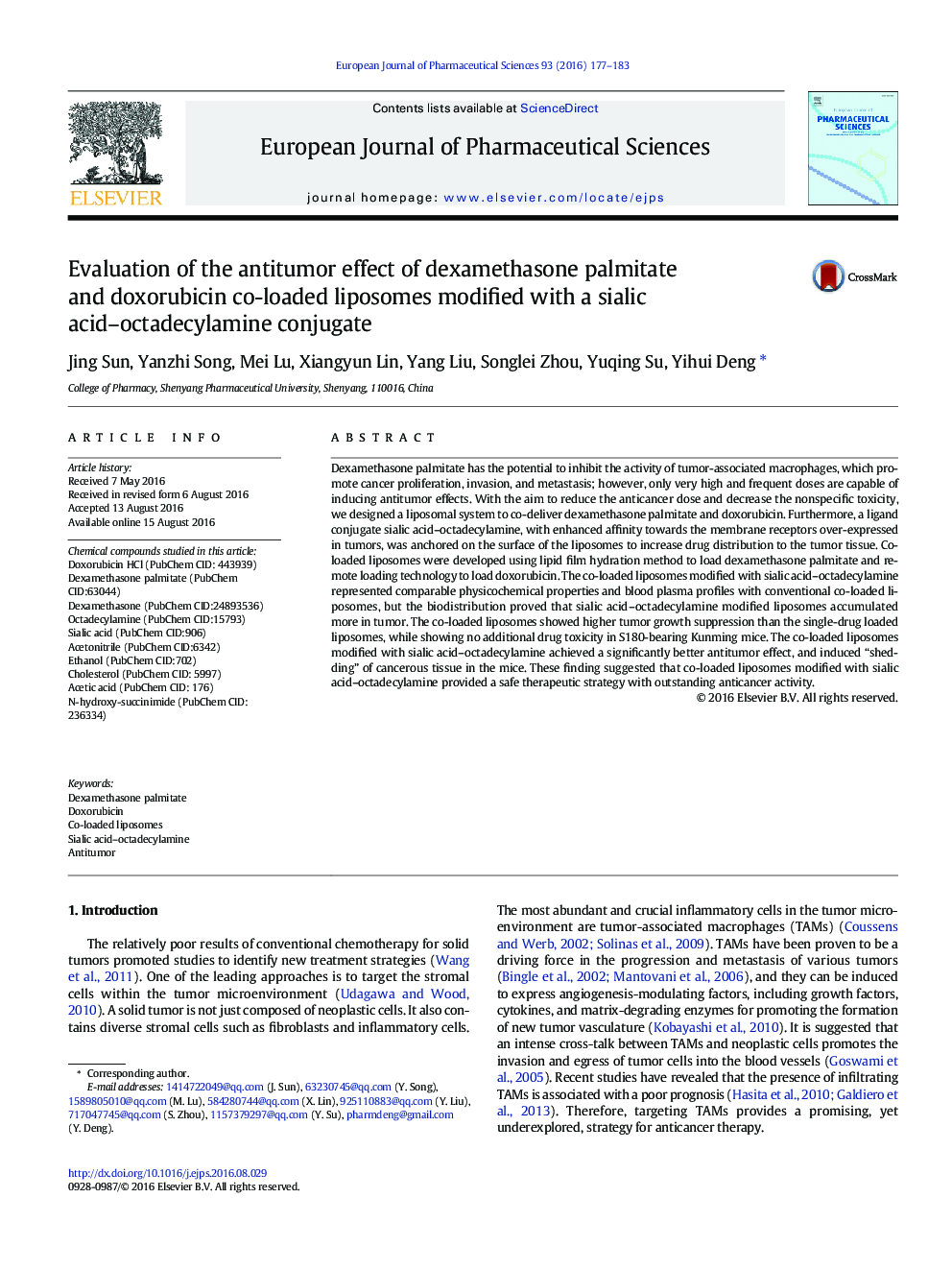| Article ID | Journal | Published Year | Pages | File Type |
|---|---|---|---|---|
| 5809392 | European Journal of Pharmaceutical Sciences | 2016 | 7 Pages |
Dexamethasone palmitate has the potential to inhibit the activity of tumor-associated macrophages, which promote cancer proliferation, invasion, and metastasis; however, only very high and frequent doses are capable of inducing antitumor effects. With the aim to reduce the anticancer dose and decrease the nonspecific toxicity, we designed a liposomal system to co-deliver dexamethasone palmitate and doxorubicin. Furthermore, a ligand conjugate sialic acid-octadecylamine, with enhanced affinity towards the membrane receptors over-expressed in tumors, was anchored on the surface of the liposomes to increase drug distribution to the tumor tissue. Co-loaded liposomes were developed using lipid film hydration method to load dexamethasone palmitate and remote loading technology to load doxorubicin. The co-loaded liposomes modified with sialic acid-octadecylamine represented comparable physicochemical properties and blood plasma profiles with conventional co-loaded liposomes, but the biodistribution proved that sialic acid-octadecylamine modified liposomes accumulated more in tumor. The co-loaded liposomes showed higher tumor growth suppression than the single-drug loaded liposomes, while showing no additional drug toxicity in S180-bearing Kunming mice. The co-loaded liposomes modified with sialic acid-octadecylamine achieved a significantly better antitumor effect, and induced “shedding” of cancerous tissue in the mice. These finding suggested that co-loaded liposomes modified with sialic acid-octadecylamine provided a safe therapeutic strategy with outstanding anticancer activity.
Graphical abstractDownload high-res image (78KB)Download full-size image
